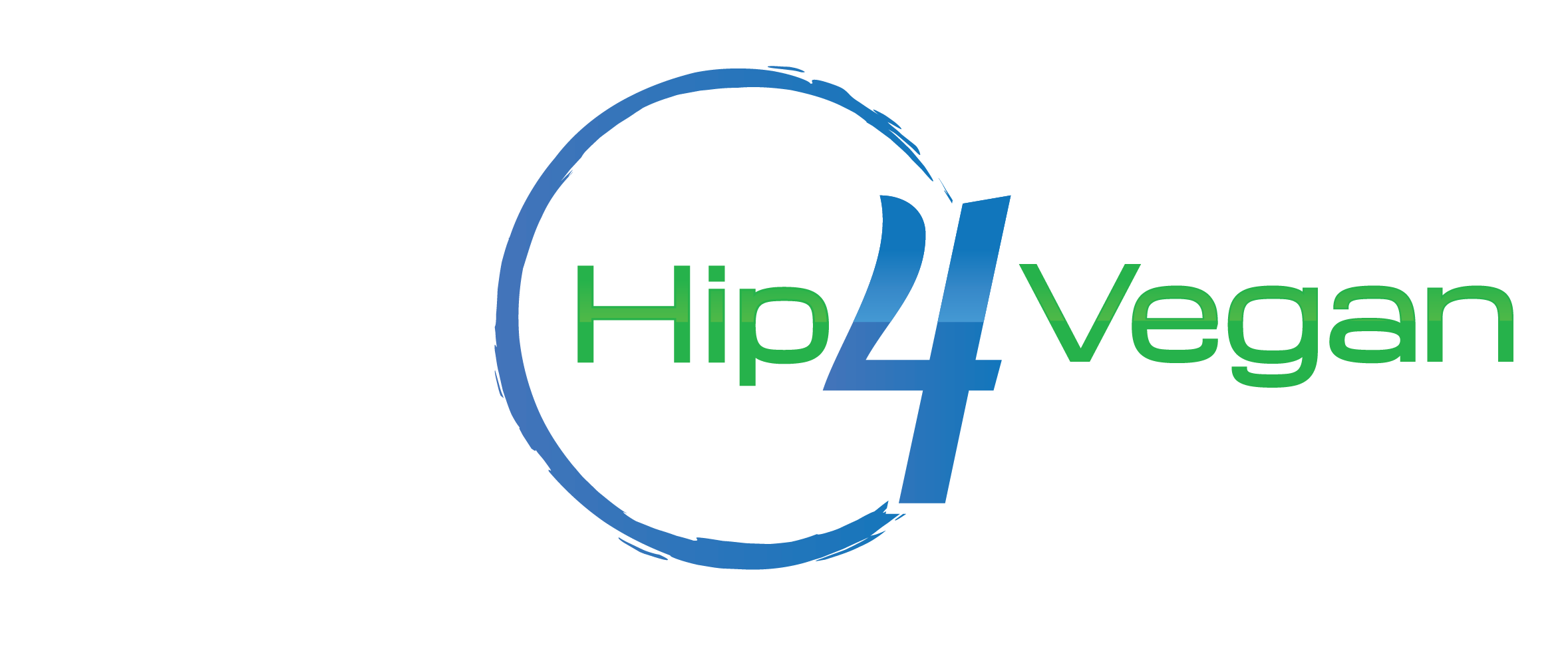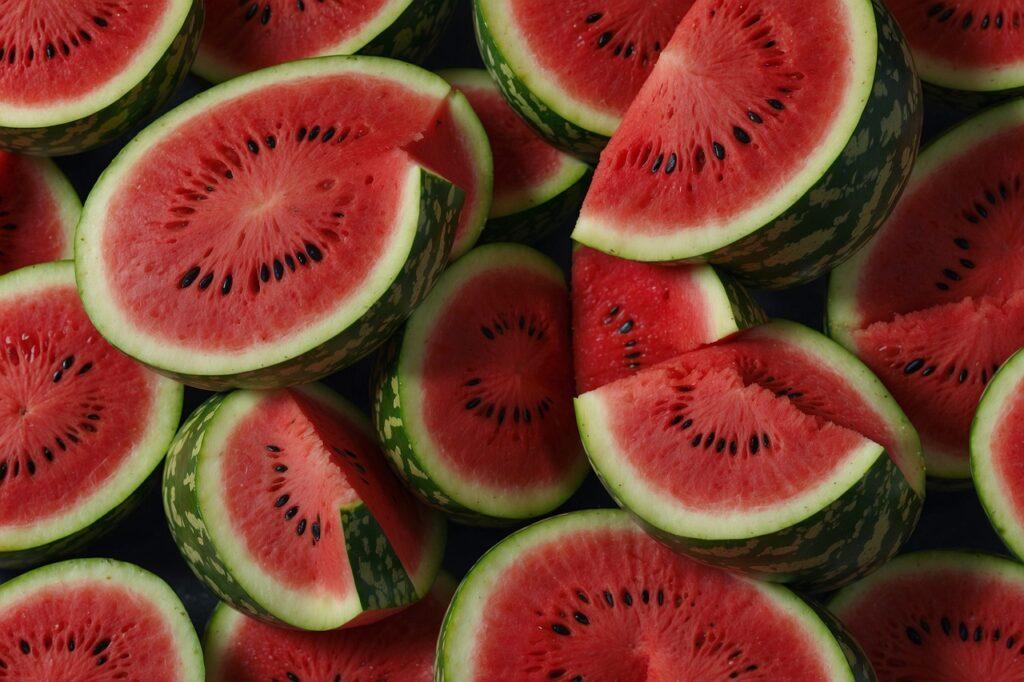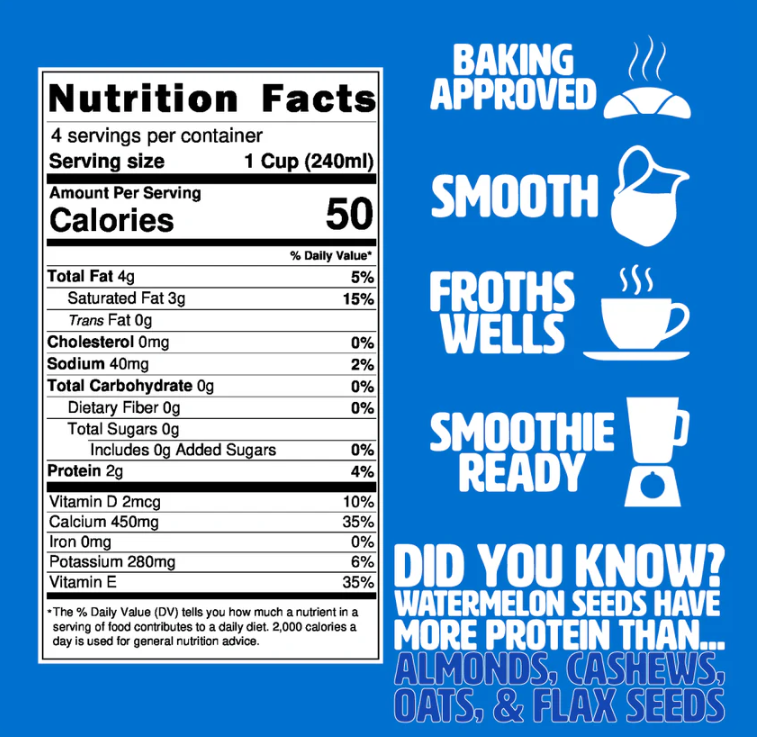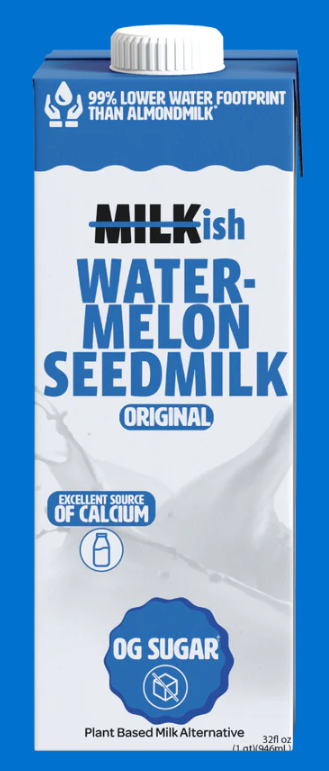In a world where sustainable choices are becoming increasingly crucial, Força Foods has introduced a game-changing innovation in the plant-based milk industry: watermelon seed milk. This breakthrough product not only promises to revolutionize how we think about alternative milk but also addresses one of the most pressing environmental concerns – water conservation.
From Plant Science to Food Innovation: The Força Foods Story
The journey of Força Foods began with Guilherme Maia Silva, a Brazilian entrepreneur whose passion for sustainable agriculture was shaped by his experiences at UC Davis’s renowned Plant Sciences program. “Water scarcity is one of the biggest limiting factors to our global food supply,” says Maia Silva. “Growing up in Brazil and later studying in California, I witnessed firsthand how water accessibility impacts food security and agricultural sustainability.”
Maia Silva’s expertise in organic farming and sustainable agriculture led him to question the status quo of plant-based alternatives. “When I learned that California dedicates over 1.3 million acres to growing almonds, consuming precious water resources, I knew there had to be a better way,” he explains. This realization sparked his search for water-efficient superfoods, ultimately leading to the discovery of watermelon seeds’ potential.
Environmental Impact: A Game-Changing Comparison
Dr. Sarah Martinez, a leading expert in sustainable food systems at Stanford University, notes: “The innovation we’re seeing with watermelon seed milk represents exactly the kind of thinking we need in our food system. It’s not just about creating plant-based alternatives anymore – it’s about creating sustainable ones.”
The Water Crisis and Veganism: A Critical Intersection
The launch of watermelon seed milk highlights a crucial conversation within the vegan community about water conservation. While plant-based diets generally require less water than animal agriculture, not all vegan options are created equal when it comes to water usage.
“The vegan movement needs to evolve beyond just avoiding animal products,” says Dr. Michael Chen, Director of the Institute for Sustainable Agriculture. “We need to consider the entire environmental impact of our food choices, including water usage, carbon footprint, and land use. Watermelon seed milk is a perfect example of this next-generation thinking in plant-based innovation.”
California’s almond industry, which produces 80% of the world’s almonds, requires vast amounts of water – approximately 1.1 gallons to grow a single almond. This reality has created a challenging paradox for environmentally conscious vegans who want to make the most sustainable choices.

Beyond Milk: The Future of Watermelon Seeds in Vegan Products
Maia Silva’s vision extends beyond just milk alternatives. “We’re just scratching the surface of what’s possible with watermelon seeds,” he shares. “Our R&D team is exploring applications in multiple food categories, always with sustainability at the forefront.”
Força Foods' innovation opens up exciting possibilities for other vegan products
- Plant-Based Cheese: Already in development, watermelon seed-based cheese could offer a sustainable alternative to existing options
- Protein Powders: With their high protein content, watermelon seeds could become a new base for sustainable protein supplements
- Baking Ingredients: The neutral taste profile makes it perfect for creating sustainable baking alternatives
- Natural Sweeteners: Research is ongoing into watermelon-derived sweeteners
Why This Matters
“The future of food must be both sustainable and scalable,” emphasizes Dr. Lisa Thompson, Environmental Science researcher at MIT. “What makes watermelon seed milk particularly interesting is its potential to address both challenges while delivering on taste and nutrition.”
Water scarcity isn’t just an environmental issue – it’s a global crisis affecting food security and agricultural sustainability. With agriculture consuming over 70% of the world’s freshwater, choosing water-efficient alternatives like watermelon seed milk represents a significant step toward a more sustainable future
Looking Ahead
Maia Silva remains optimistic about the future: “We named our company Força Foods because ‘força’ means strength in Portuguese. We believe in the strength of innovation, the strength of sustainability, and most importantly, the strength of conscious consumers making better choices for our planet.”
The company’s commitment to developing water-efficient food options could revolutionize how we approach sustainable food production in the vegan industry. As Maia Silva puts it, “Every glass of watermelon seed milk represents a step toward a more sustainable food system. It’s not just about creating alternatives – it’s about creating better alternatives.”
Taking Action
For environmentally conscious vegans looking to reduce their water footprint, watermelon seed milk offers an exciting new option that aligns with both ethical and environmental values. By supporting innovations like these, we can help drive the industry toward more sustainable practices.
Follow Força Foods’ journey and product availability updates on their website and social media channels.



